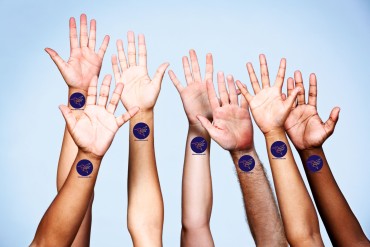Aotearoa called to #GlowUpShowUp for Rare Disorders Month

Today is International Rare Disease Day and marks the start of the first Aotearoa Rare Disorders Month.
Rare Disorders New Zealand (RDNZ) is calling on Aotearoa to Glow Up and Show Up for the rare disorder community throughout March in recognition of a population who has been left in the dark for too long.
The month is an advocacy and support period for the more than 300,000 New Zealanders who live with one of 6,000+ rare disorders.
RDNZ Chief Executive Michelle Arrowsmith says Glow Up and Show Up for Rare is all about shining a light on the urgent need for action to improve the health and wellbeing for people living with a rare disorder.
“The Government promised action for this group of New Zealanders - now they need to do right by them. From today and throughout Rare Disorders Month, we will be putting a spotlight on rare disorders, maintaining visibility, initiating important conversations, and highlighting how we can all show up.
“Together we can bring rare disorders out of the darkness, and into the light.”
Activity kicks off today at Government House with the launch of a parent and caregiver guide for the thousands of whānau of children diagnosed with a rare disorder.
During the month of March, Aotearoa can Glow up and Show up for Rare via community, workplace, and school events. Other major events include a fundraising Paintvine Event and a Rare Beer challenge with Fortune Favours in Wellington.
Sustained social and media content, collecting data and raising funds will also be a focus.
Unlike most OECD countries, New Zealand doesn’t have a national strategy for rare disorders.
“For policy makers, Rare Disorders Month is all about doing right by rare and following through on a commitment to create constitutional change by developing a rare disorders strategy,” says Ms Arrowsmith.
According to the 2021 Voice of Rare Disorders Survey, over half of people living with a rare disorder took longer than 1 year to get a diagnosis, and for one in five the time taken to get a diagnosis was over 10 years.
Meanwhile, 55% of respondents indicated their disorder impacted a lot on their health and everyday life, and 32% required more than 2 hours per day for illness-related daily tasks.
“Living with a rare disorder isn’t rare – the size of the community is similar to that of a big city like Wellington. If you don’t have a rare disorder, then you likely know someone who does. And they
need you to Glow Up And Show Up this Rare Disorders Month,” says RDNZ Chair James McGorman.
Comprehensive guides detailing how to #GlowUpShowUp are available for schools, support groups, workplaces, individuals, healthcare clinics and community groups on raredisorders.org.nz.
If you would like to donate to show your support for the rare disorder community, donations can be made via Givealittle at givealittle.co.nz/cause/glowupshowup
@RareDisordersNZ
#GlowUpShowUp